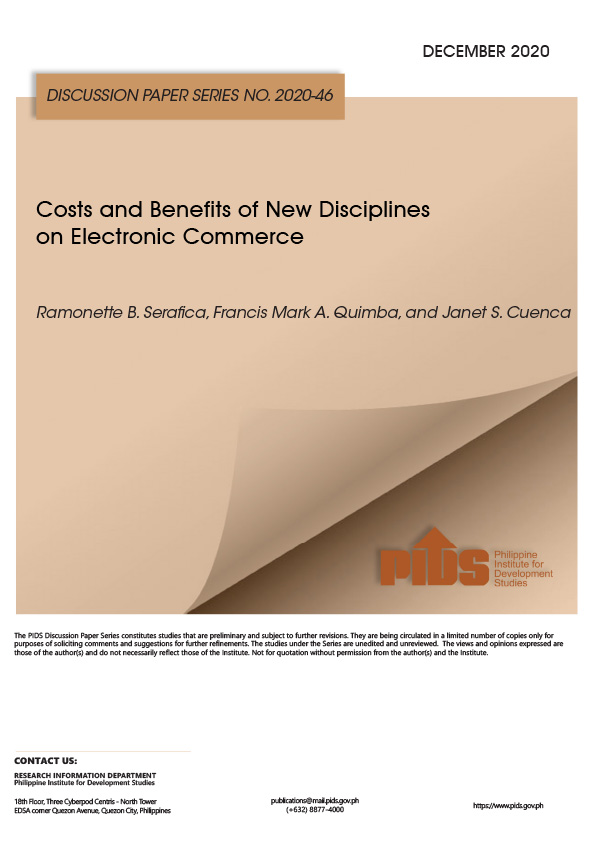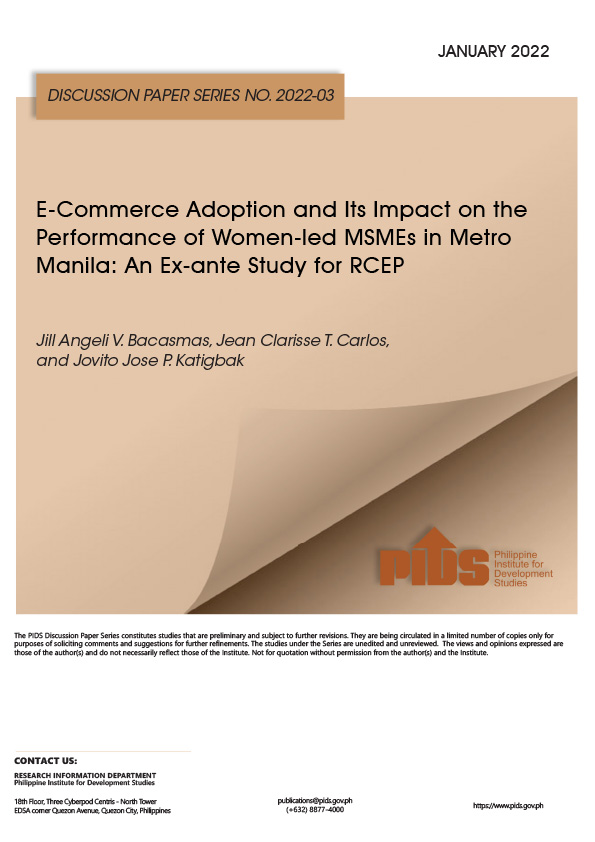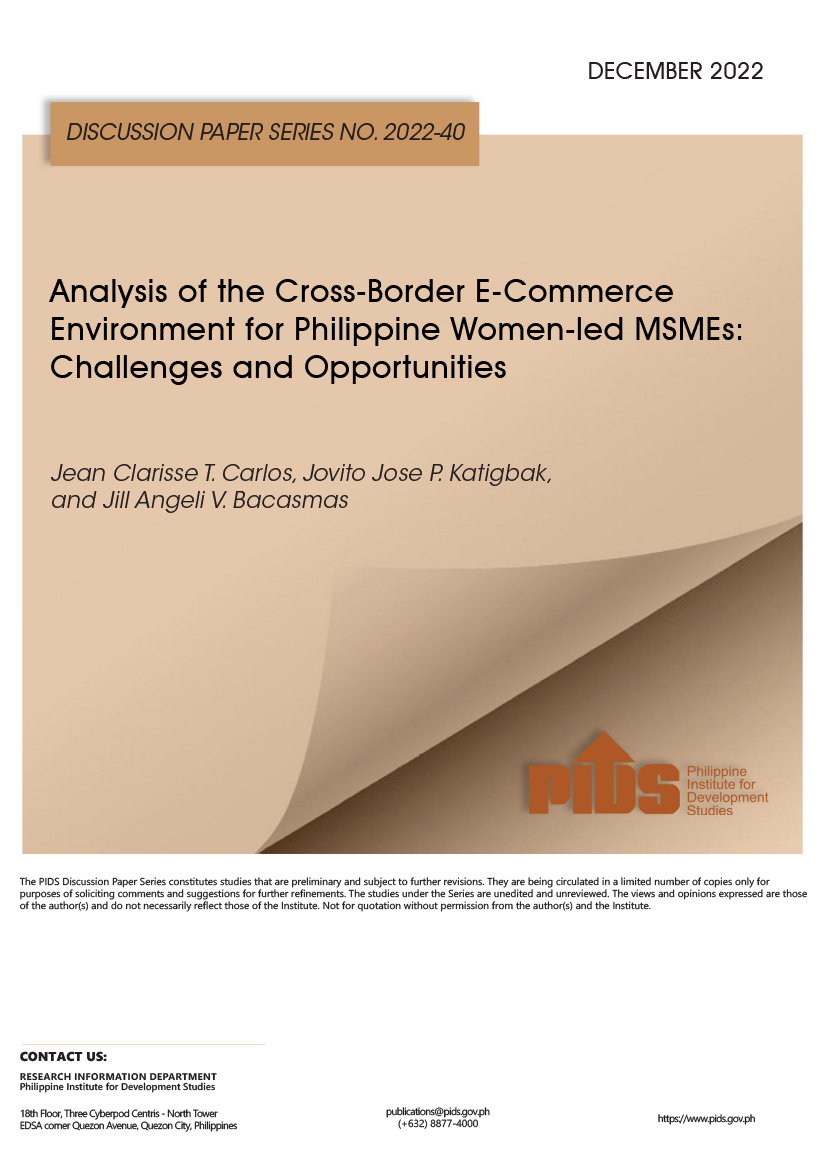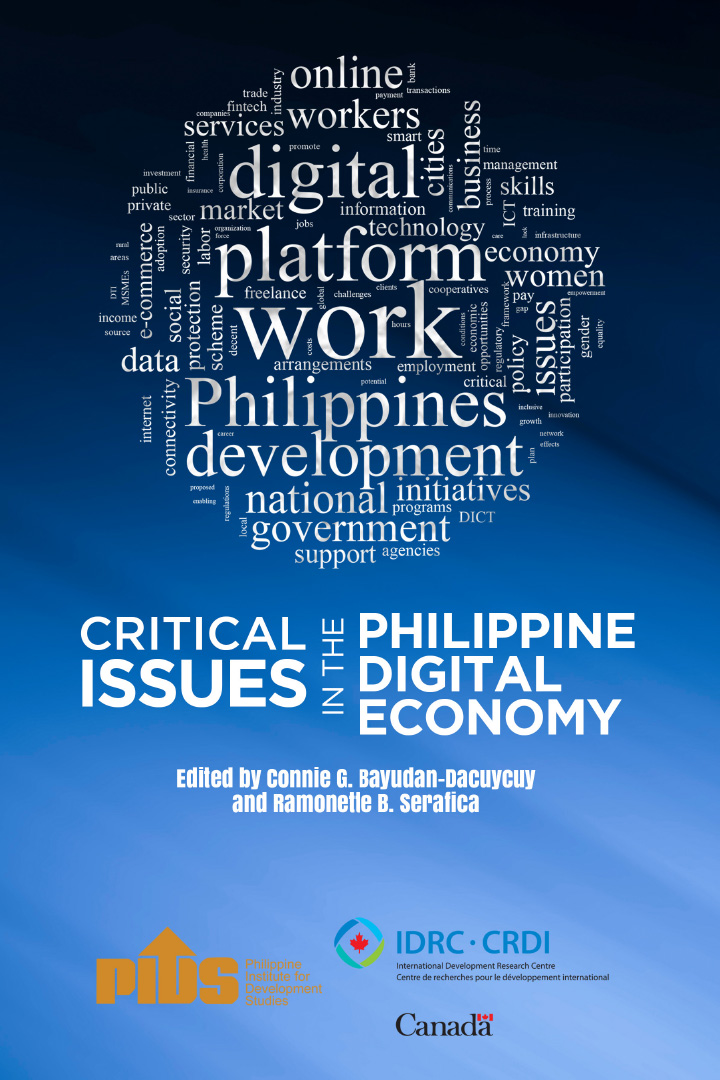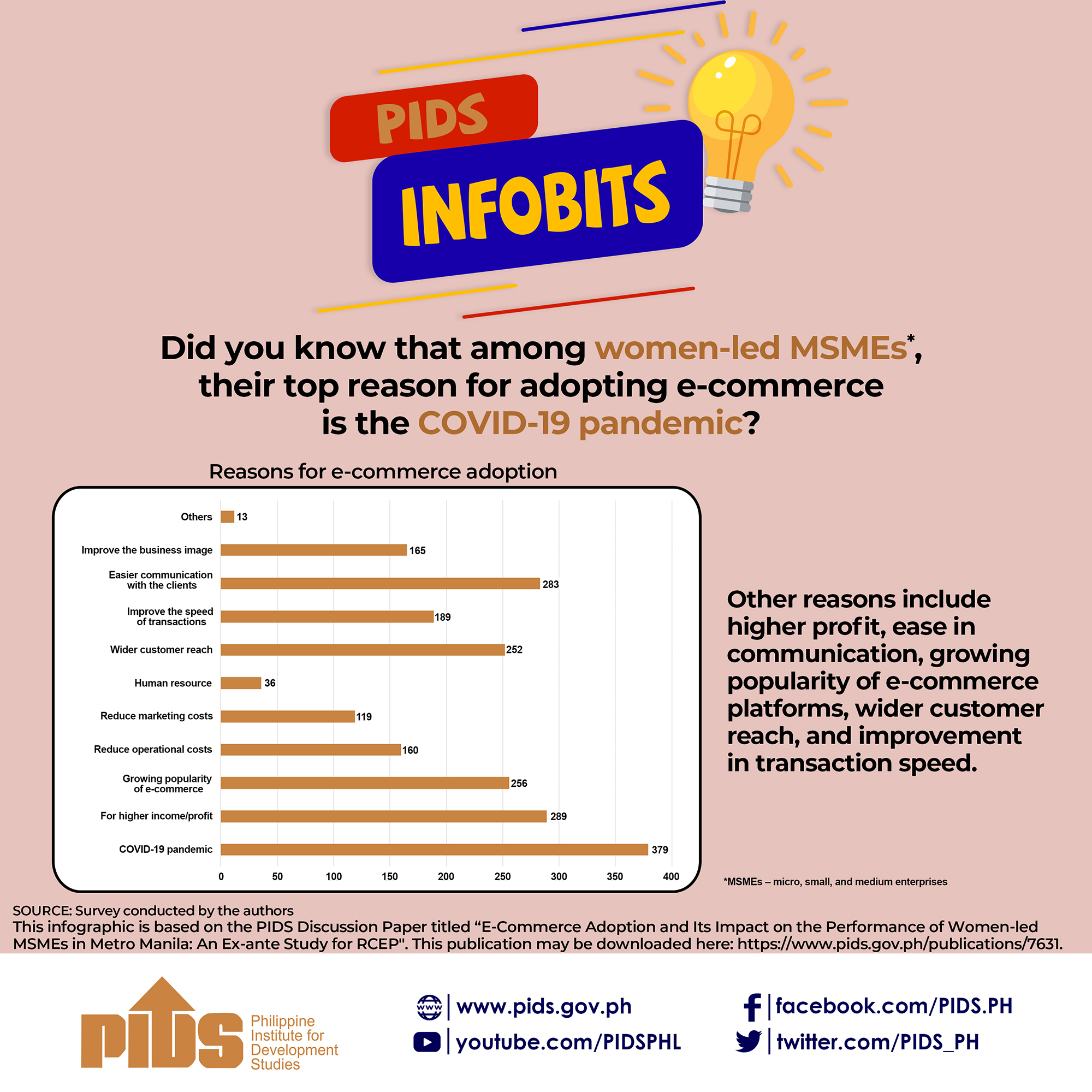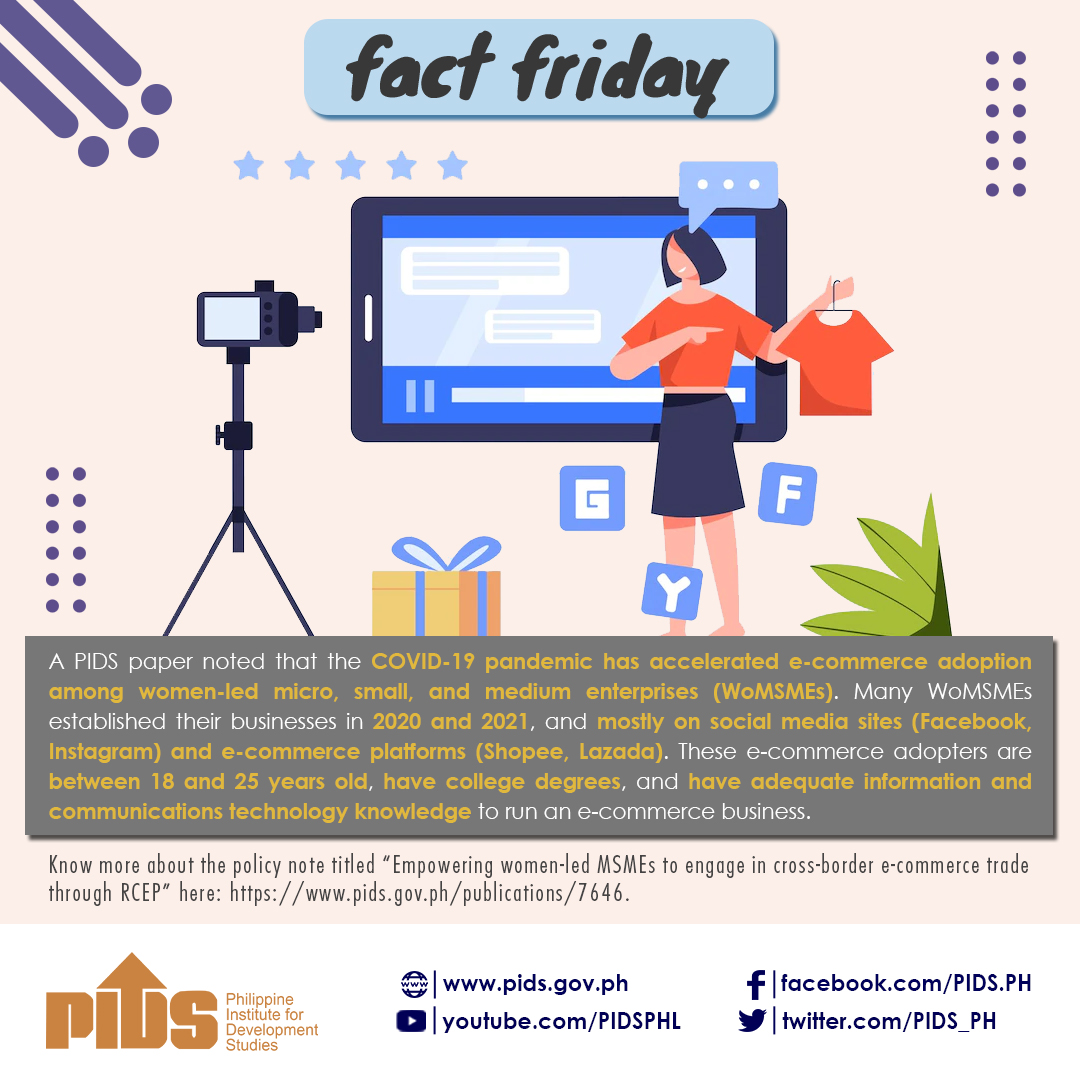In January 2020, the Philippines joined the World Trade Organization Joint Statement Initiative on E-commerce which seeks to develop a multilateral agreement on trade-related aspects of e-commerce. This paper explores the costs and benefits of possible trade disciplines, particularly the moratorium on customs duties on electronic transmissions. Based on estimates of digitizable products, the foregone revenue of a moratorium represents about 0.10 percent and 0.65 percent of national government revenues using the average MFN rate and the bound tariff rate, respectively. Estimates based on broader definitions of electronic transmission range from 0.59 to 1.38 percent and from 3.68 to 8.59 percent of national government revenues using the average MFN rate and bound rate, respectively. However, there are practical difficulties and policy constraints which could limit the actual intake from tariffs. Various barriers to cross-border data flows could also adversely affect not only data-intensive industries but the economy more broadly. Thus, the country should support trade rules that facilitate cross-border data flows. At the same time, the government must invest in digital infrastructure necessary for an efficient and effective tax system fit for the digital economy.

